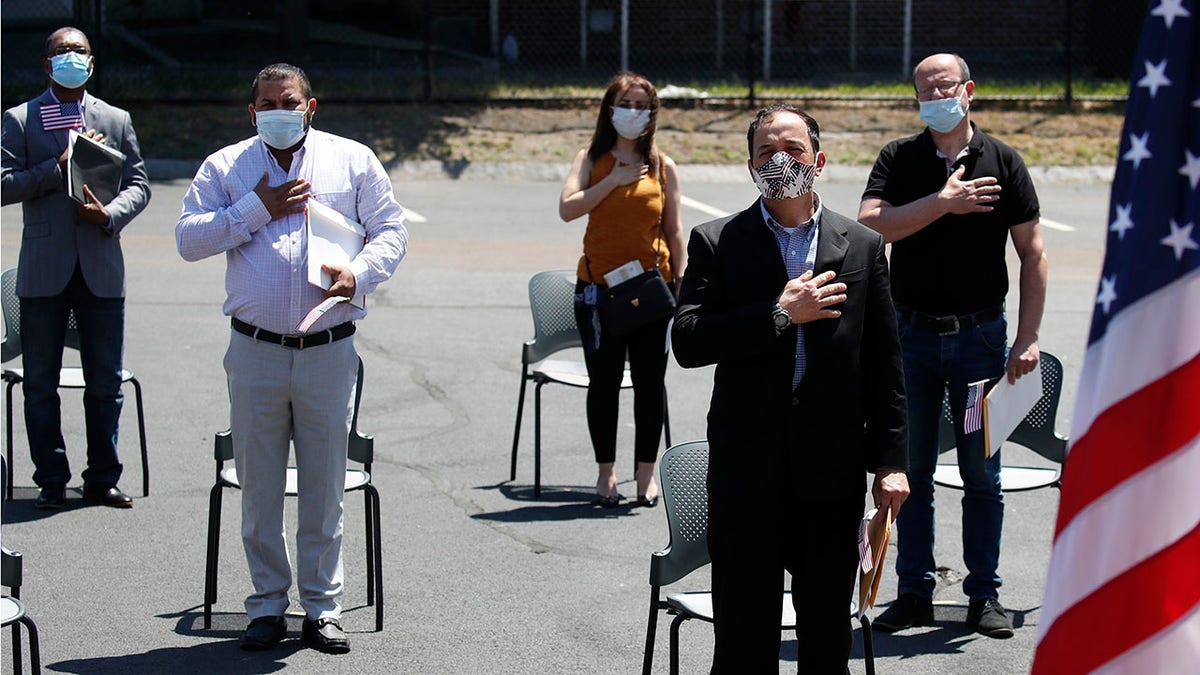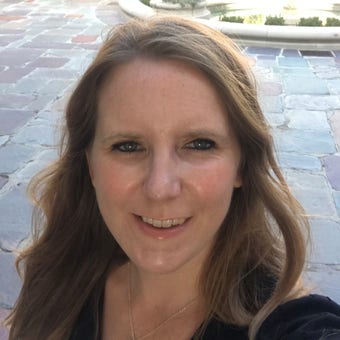Tom Homan slams Biden for saying he would reverse Trump’s immigration policies
Former ICE Director Tom Homan says President Trump has had 'unprecedented success' on the border and it ‘all goes away’ under a Biden administration.
Starting next month, a new version of the U.S. citizenship test will require applicants to answer twice as many questions as the current one.
Immigration and naturalization experts say the revamped test, which raises the number of questions to 20 from 10, could limit the number of tests done each day and slow down the process.
However, test-takers will have to answer only 12 questions correctly to pass, the same pass rate as the old test.
“These changes reduce the efficiency of this already struggling agency,” Sarah Pierce, a policy analyst at the Washington, D.C.-based, nonpartisan Migration Policy Institute, said, referring to its citizenship application backlog. “The administration is adding hundreds of thousands of more minutes to these naturalization exams.”

New U.S. citizens, socially distanced, recite the Pledge of Allegiance outside the U.S. Citizenship and Immigration Services building in Lawrence, Mass., June 4, 2020. (Associated Press)
BIDEN'S PICKS FOR TRANSITION TEAM THE LATEST SIGN OF A RADICALLY DIFFERENT APPROACH TO IMMIGRATION
She said the extra questions could triple the amount of time it takes to administer and process the tests.
Pierce said that under previous rules, applicants could potentially answer only six of 10 questions if they gave all the correct answers, but now applicants must respond to 20 questions even when they already got 60% of them correct.
The new test foregoes geographical questions and test-takers will be required to name all three branches of government instead of just one. (The branches are the judicial, legislative and executive, referring to the Supreme Court, Congress and the president, respectively.)
'PROPERTY BROTHERS' STAR JONATHAN SCOTT, BORN IN CANADA, VOTES IN FIRST US ELECTION: 'I AM PROUD'
It also changes the answer to a question on whom U.S. senators represent from “all people of the state” to “citizens in their state,” which has drawn criticism over its accuracy.
The new test “covers a variety of topics that provide the applicant with a more well-rounded testing experience,” Citizenship and Immigration Services spokesman Dan Hetlage said, noting that applicants who have lived in the U.S. for more than 20 years and are over age 65 will pass with six correct answers out of 10 questions, just as before.
The number of people naturalized in the fiscal year 2019 – more than 840,000 - rose by 11% from the year before, according to government statistics.
Taking the citizenship test happens at the end of the months’ long application process that is open to residents who have lived legally in the U.S. for more than five years.
CLICK HERE TO GET THE FOX NEWS APP
In recent years, the average wait time for an applicant has also grown. It was nearly 10 months in the 2019 fiscal year compared with fewer than six months three years prior. The government lists estimated naturalization processing times on its website of between 14.5 and 26 months in Houston and 16.5 and 32 months in New York City.
The Associated Press contributed to this report.






